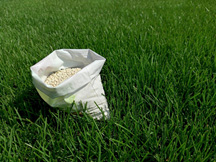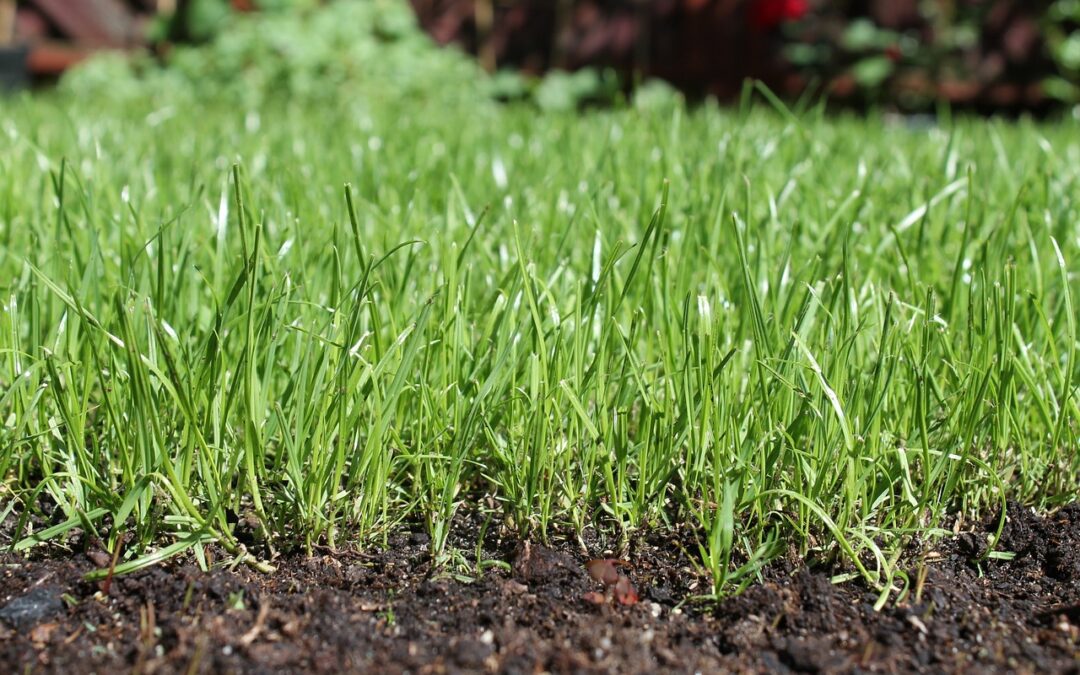What is soil testing?
Soil testing is the process of sending a sample of your land’s soil to a laboratory to receive an accurate analysis of the soil’s fertility and nutrient levels to make informed lawn care decisions. Soil testing is recommended for every homeowner before they make any fertilizer applications. This step avoids overfertilization and encourages knowledgeable lawn care practices.
There are many ways to test your soil, from at-home kits to laboratory tests. However, laboratory testing is always recommended over quick test kits because they are more reliable. In addition, many universities, including the University of Massachusetts, offer accessible and easy soil testing for homeowners.
The advantages of soil testing
 All homeowners should take advantage of this incredible ecological technology before tending to their lawns. Testing your soil before jumping into lawn care has four primary benefits:
All homeowners should take advantage of this incredible ecological technology before tending to their lawns. Testing your soil before jumping into lawn care has four primary benefits:
- Get insight into soil health. Homeowners that invest in soil testing have better knowledge about the makeup of their soil. Test results will allow you to see your soil’s current pH level, macro and micronutrient levels, soil texture, and how much organic matter is in the soil composition.
- Improve nutrient balance. Investing in a soil test before spring lawn care will help you better eliminate nutrient deficiencies in the earth. A soil test will detect what elements your soil lacks so you can shop for a fertilizer that meets your needs and encourages turf growth with nutrient-rich soil.
- Optimize grass growth. Soil health directly impacts the vitality of your grass, so if you want a luscious lawn, it’s crucial to ensure your turf gets the nutrients it requires. The best way to increase grass growth is through fertilizing with a ratio of macronutrients tailored to your grass’s needs, as documented in the test results.
- Save resources. Buying the wrong fertilizer and soil amendments at the home improvement store is surprisingly easy if you don’t know what you need. Instead of guessing, you can rely on an accurate soil analysis to list the recommended soil additives and shop for a fertilizer that best matches the results.
When to test your soil
There’s no best time to test your soil. You can soil test any time of the year if it’s not frosted or frozen. However, as time goes on, your soil composition will gradually change. We recommend testing your soil every 1-3 years due to these ongoing changes. However, avoid testing immediately after applying fertilizers or amendments to your soil. Instead, test your soil before using additives to get accurate results and apply the correct products for your lawn’s needs. With these things in mind, you might find that testing your soil is most manageable in the spring after the ground defrosts.
How to test your soil
Testing your soil at home can be done in as little as four steps. First, you need to gather a few tools to collect the soil. A trowel, bucket, and gloves will make soil testing a swift and clean process. Then, take ten slices of soil in random areas of your yard six to eight inches deep. Put each sample into the bucket and mix them thoroughly. After, send roughly two cups of the sample to a Co-op Research and Extension Service. Thankfully, Massachusetts homeowners can reach out right to the UMass soil lab and fill out the form here for easy, professional testing!
How to interpret soil test results
 When you receive the test back, your results will be compared to the standard testing ranges of your local lab. Here are a few things to keep in mind when interpreting your soil test results:
When you receive the test back, your results will be compared to the standard testing ranges of your local lab. Here are a few things to keep in mind when interpreting your soil test results:
- Soil pH. The acidity or alkalinity of your soil affects which nutrients your lawn can uptake. Lawns prefer neutral to slightly acidic soil, as they can maximize nutrient uptake and compete against hardy weeds.
- Soluble salt levels. All soils need some salt for plants to soak up water, but too much can harm grass health. When salinity is too high, grass roots can’t take up water, resulting in dehydrated plants. Understanding your soil’s soluble salt levels will enable you to change your watering habits to balance the salinity.
- Nutrient levels. The most important part of a soil test is the nutrient level results. The test will help you recognize deficiencies in the three macronutrients, nitrogen, phosphorous, and potassium (NPK). It will also tell you if your yard has too much of any particular nutrient.
Then, use the results of your test wisely to make decisions about your lawn’s maintenance. If you want a trained eye to examine your soil test, call up your local lawn care pros, who will be delighted to help you in your lawn care journey. Lawn care experts can rapidly read your test results and recommend services based on your lawn’s requirements. Taking the professional route guarantees that your lawn care will be tailored to your lawn’s current condition.
Boost your soil with Massachusetts fertilizing services
Soil testing is critical to maintaining your lawn’s health and vitality. By providing insight into several aspects of your soil’s health, it allows you to make informed decisions when heading into spring lawn fertilizing. In addition, soil testing can help you achieve a luscious, healthy lawn by making it easier to raise nutrient levels, optimize grass growth, and save you time and money at the store. So, whether you’re a DIY enthusiast or prefer to leave it to the experts, soil testing is a must for every Massachusetts homeowner looking to enhance their grass’s health.
Soil testing is a beneficial tool for every Massachusetts homeowner to improve the density and vibrance of their lawn. If you want to boost your turf’s vitality by improving the quality of your soil, we’re here to help. Please call us at (508) 281-1441 or contact us here to learn about our fertilizing services. For more tips and tricks from the experts, visit our blog.


Recent Comments